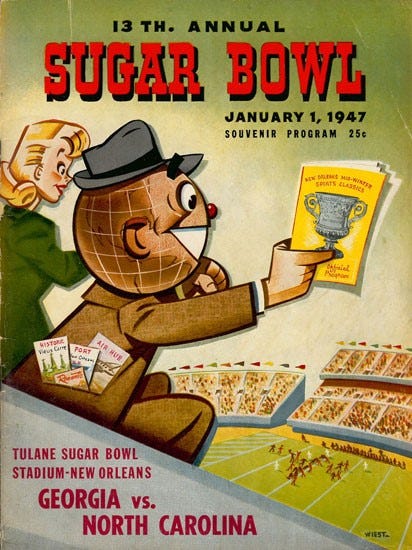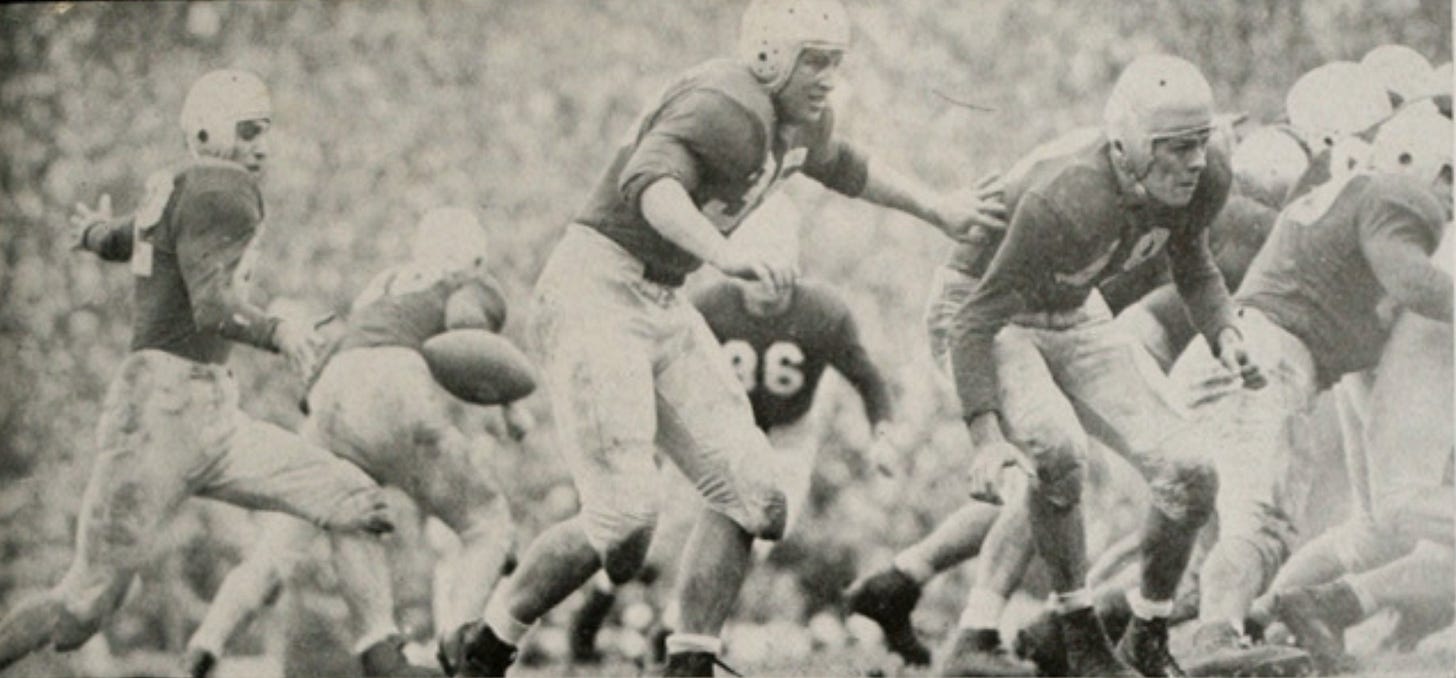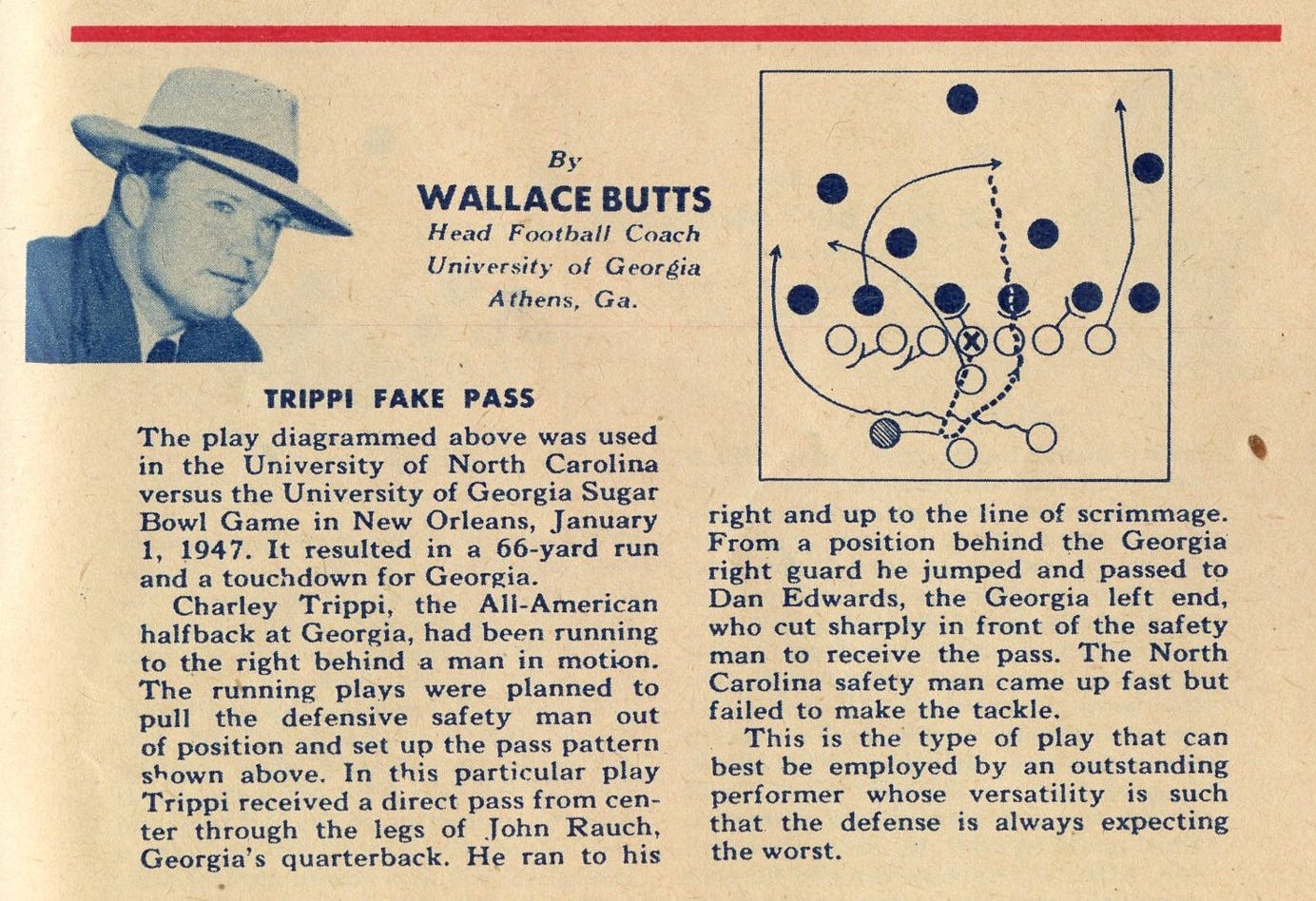Today's Tidbit... Charley Trippi and the 1947 Sugar Bowl
Although the modern national championship process is great in many respects, the messiness, uncertainty, and ongoing arguments about who deserved various national championships had its magic. An example season in which multiple teams staked claim to the championship game came in 1946, which was among the most talent-laden in college football history as returning servicemen filled rosters nationwide. The regular season ended with Army and Notre Dame ranked #1 and #2 after playing a scoreless November game when each team had a pair of Heisman Trophy winners on their rosters. Neither Army nor Notre Dame went to bowl games back then, so the 1947 Sugar Bowl with #3 Georgia, winners of the SEC, and #9 North Carolina, the Southern Conference champs playing in their first bowl game, provided New Year's Day's top matchup.

Charley Trippi led Georgia's team.
The quintuple threat ran, passed, punted, and returned kicks for the Bulldogs while tying for the nation's lead in interceptions with five. The Bulldogs' quarterback was John Rauch, who went on to a long college and NFL coaching career. Halfback Charlie "Choo Choo" Justice led UNC, while their fullback, Walt Pupa, hailed from Pittston, Pennsylvania, Trippi's hometown.
In a back-and-forth game marred by rain and controversial calls, the lower-rated Tar Heels led 7-0 at half by virtue of a Pupa run.
Early in the third quarter, the Bulldogs tied it up following an interception and lateral that UNC fans thought had been tossed forward. Georgia trailed again after a third-quarter field goal by UNC. Yet, Georgia responded quickly when Trippi faked a run off his guard before throwing a jump pass to left end Dan Edwards, who, crossing left to right, caught the ball and evaded the Tar Heel defenders for a 66-yard touchdown, giving Georgia a 13-10 lead.
An 80-yard touchdown drive by Georgia in the fourth quarter finished the scoring and UNC, as the Bulldogs walked off with a 20-10 victory and their 16th straight win.

Trippi and Rauch played all 60 minutes of the game, finishing a season in which Trippi won the Maxwell Award and was runner-up to Glenn Davis for the Heisman.
After a signing battle between the AAFC and NFL, Trippi signed the largest pro football contract to date ($100,000 over four years) with the Chicago Cardinals, helping them to the 1947 NFL championship and leading the league in all-purpose yards in 1948 and 1949. Named to the NFL's All-1940s team, he retired after the 1955 season as the NFL's career total offense leader. He then coached with the Cardinals for eight years before leaving football, passing away in 2021 as the second former NFL player to reach 100 years of age.
Football Archaeology is reader-supported. Click here to buy one of my books or otherwise support the site.



